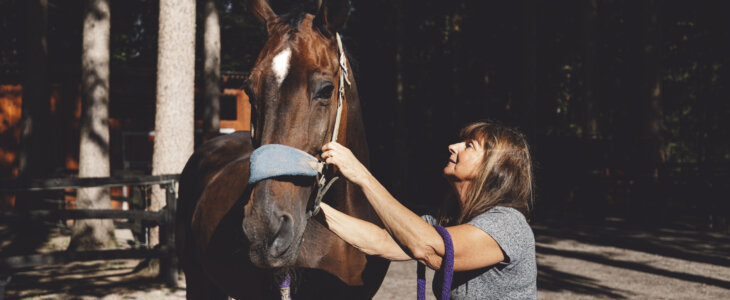Protecting Your Rights in Horse Training
As horse ownership grows, so does the need for clear and enforceable equine training agreements. Whether you’re a horse owner seeking professional training for competition or a trainer responsible for the care and development of a horse, having a detailed contract is essential for protecting both parties’ rights and interests. Equine training is a significant investment of time, money, and expertise, and a well-crafted agreement ensures that everyone is on the same page, avoiding misunderstandings down the line. Keep reading for more information from Gueronniere Law on what to consider when signing or enforcing an equine training agreement.
What Is an Equine Training Agreement?
An equine training agreement is a legally binding contract between a horse owner and a trainer that outlines the terms and conditions of training services. It is more than just a handshake deal; it details each party’s expectations, responsibilities, and obligations, helping minimize risk and ensure that both sides are legally protected. From outlining payment terms to addressing the scope of services and handling liability, these agreements cover a wide range of important factors.
Key Elements of an Equine Training Agreement
A well-drafted equine training agreement should include the following critical components:
- Description of Services: The first and perhaps most important part of the contract is a clear description of the training services to be provided. This could include groundwork, general behavioral training, or preparation for specific competitions. Detailing what kind of training the horse will undergo prevents disputes over performance or results.
- Payment Terms: The contract should clearly define the payment structure. Some trainers may charge on an hourly basis, while others prefer weekly or monthly fees. Be sure to include any additional costs, such as feed, veterinary care, or special equipment, which may arise during the training period. Transparency here is essential to avoid conflicts over unexpected expenses.
- Duration of the Agreement: Every training contract should specify the duration of the training services. Whether the arrangement is for a fixed term (e.g., six months of competition preparation) or ongoing, having a set timeline helps both parties understand their obligations and expectations.
- Liability Clauses: Horse training inherently involves risks, both for the horse and the trainer. The agreement should clearly outline who is responsible for injuries or accidents during the training. Liability waivers are a common feature of these contracts, protecting the trainer from lawsuits in case of an incident. The horse owner may also want provisions that protect their investment in the horse’s health.
- Termination Clauses: Circumstances can change during the course of training, making it necessary to end the agreement. Termination clauses should detail the grounds for ending the contract, such as poor performance, behavioral issues with the horse, or financial problems. Including a notice period ensures that both parties can prepare for the end of the training arrangement without abrupt disruptions.
Legal Protections for Horse Owners and Trainers
One primary reason for having a formal equine training agreement is the legal protection it offers. For trainers, liability waivers protect against potential lawsuits arising from horse-related injuries. For horse owners, contracts safeguard their investment, ensuring that the trainer meets specific goals and standards. Additionally, agreements often include provisions for insurance, indemnification, and medical treatment decisions to shield both parties from unexpected legal or financial consequences.
Dispute Resolution
Even with a detailed contract, disputes can arise. Including a dispute resolution clause in the agreement is vital to determine how disagreements will be handled. Many equine contracts specify mediation or arbitration as a first step, which can help resolve issues without the need for expensive and time-consuming litigation. Legal recourse is also available in case of a breach of contract, and both parties should be aware of their options in such situations.
Common Pitfalls in Equine Training Agreements
While a good contract can prevent many issues, poorly written or vague agreements may lead to misunderstandings. Common pitfalls include using vague language regarding training expectations or failing to address unforeseen circumstances, such as horse injury or trainer illness. Additionally, overlooking detailed fee structures can result in disputes over payments or unexpected costs. You can avoid these common mistakes by ensuring that the agreement is comprehensive and clear.
How an Attorney Can Assist with Equine Training Agreements
Drafting a comprehensive equine training agreement is complex and often requires legal expertise. An attorney familiar with equine law can help draft, review, and customize agreements to meet the unique needs of both trainers and horse owners. From ensuring that liability clauses are enforceable to tailoring agreements for specialized training services (such as competition preparation or rehabilitation), a skilled lawyer can help you avoid potential legal pitfalls. They can also assist with dispute resolution and represent your interests if a breach of contract occurs.
Secure Your Training with a Solid Agreement
Whether you are a horse owner or a trainer, an equine training agreement is essential for protecting your interests and ensuring a smooth working relationship. These contracts help prevent disputes and provide legal recourse if problems arise by outlining key terms like payment, services, and liability. Contact us today to draft or review your training agreement with a Wellington equine law attorney, ensuring that both you and your horse are covered.
